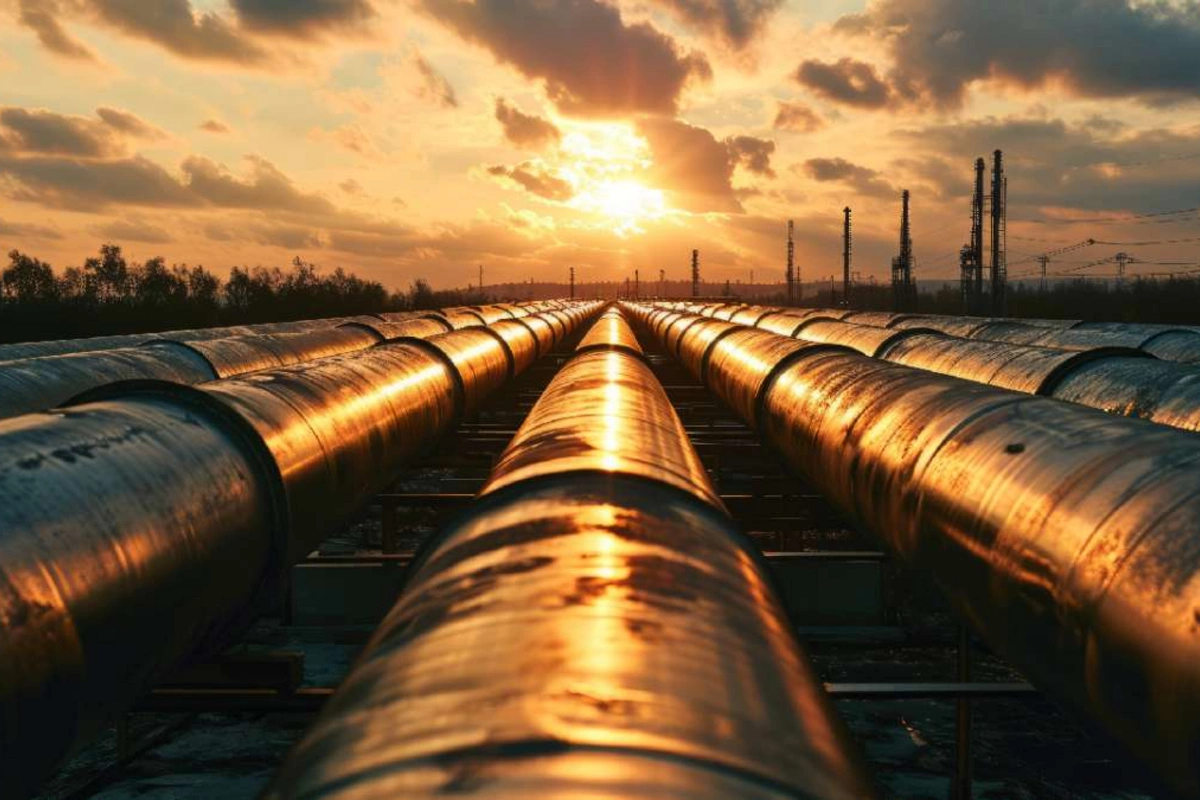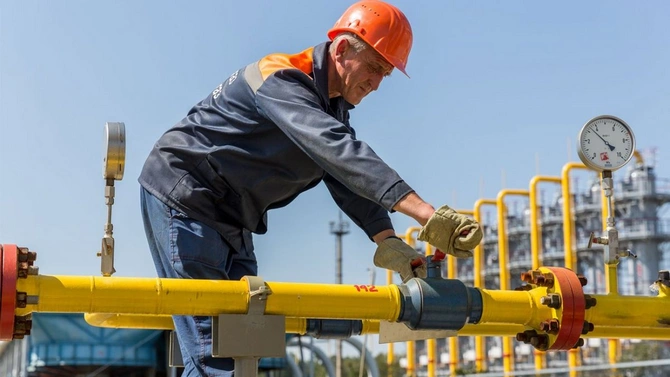
While Azerbaijan is not yet central to Russia’s strategy, it remains a key transit hub amid rising competition for Asian and European energy markets.
Photo credit: cyprusshippingnews.com
In recent years, Russia has navigated significant shifts in redirecting its energy exports from Europe to Asia, with a particular focus on deepening its presence in the major markets of China and India. Driven by geopolitical tensions and Western sanctions, Moscow has not only adjusted its energy strategy but has also forged new strategic alliances, solidifying its position on the global energy stage.
Russia has markedly increased oil exports to Asian countries, and in 2023, China and India emerged as the largest consumers of Russian energy resources, accounting for up to 90% of all external demand for Russian oil. About 50% of Russia’s oil exports were directed to China, and another 40% went to India. This shift has affected not only trade volumes but also the geographic reach of Russian energy supplies. Whereas Russian oil previously flowed primarily through Baltic and Black Sea ports to Europe, its main destinations are now in Asia. Russia’s so-called “shadow fleet” of tankers has enabled the transport of oil from Arctic, Baltic, Black Sea, and Pacific ports to meet the needs of its new markets.
Additionally, Russia supplies oil to China through the Eastern Siberia–Pacific Ocean (ESPO) pipeline, which has a throughput capacity of up to 58 million tons per year. This pipeline is crucial for ensuring a stable supply to the Chinese market, further reinforcing China’s energy dependence on Russia and enhancing Moscow’s leverage in relations with the Asian giant.
Russia’s coal exports to India and natural gas exports to China have also been steadily growing. In 2023, coal exports reached 100 million tons to China and 28 million tons to India, though a projected 18% decline in coal exports is expected in 2024 due to rising domestic demand and external economic factors. Natural gas exports remain relatively stable, thanks to the limited capacity of the Power of Siberia pipeline and Russia’s liquefied natural gas (LNG) production. Expanding gas exports would require significant investment in transportation infrastructure, though no concrete plans have been announced.
For Russia, redirecting energy supplies to Asia was a strategic response aimed at minimizing losses from Western sanctions. Losing the European market, which had long been a strategic destination, was not without challenges. However, by voluntarily cutting ties with Russian energy supplies, European countries now face significant economic difficulties, as rising energy costs have spurred deindustrialization in sectors such as petrochemicals and metallurgy. Amidst these developments, Russia has strengthened its foothold in Asian markets, developing infrastructure and establishing new logistical chains.

Photo: facebook.com/gas.tso.ua
The role of Azerbaijan in Russia’s energy strategy is another intriguing consideration. While Azerbaijan is not yet central to Russia’s strategy, it remains a key transit hub amid rising competition for Asian and European energy markets. Azerbaijan is actively expanding its transit capabilities for exporting oil and gas to Turkey and the Mediterranean region. In 2024, Baku continues to develop trans-Caspian routes for transporting hydrocarbons, though large-scale joint projects with Russia remain on hold. Specifically, negotiations on the possible use of the Baku-Tikhoretsk pipeline in reverse mode to transport Russian oil into Azerbaijan’s pipeline network have been temporarily suspended.
Despite this, Russian companies remain open to the possibility of participating in Azerbaijani transit initiatives, though these plans are currently limited to discussions and have yet to materialize in specific projects. Russia continues to rely on its projects, such as the TurkStream and South Stream pipelines, to deliver natural gas to Turkey and Southern Europe. There are also ongoing, complex negotiations regarding Russia’s potential involvement in the establishment of a gas hub in Turkey that could facilitate gas supplies to Europe, including Russian resources.
A hypothetical scenario in which Azerbaijan joins BRICS could also impact energy cooperation between the two countries. Developing a unified energy strategy within BRICS, should Azerbaijan become a member, could open new opportunities for coordination and integration in the energy market. While creating such a strategy would require significant effort to balance interests, BRICS members already recognize the importance of establishing a flexible, independent market free from monopolistic control and sanctions. Russia’s experience in overcoming sanctions could serve as a valuable example for BRICS members and potential new participants, enabling them to reduce technological and financial dependency on the West.
Russia and Azerbaijan are each pursuing opportunities to bolster their energy positions amid shifting dynamics in the global economy and politics. The future development of their energy partnership may depend on whether the countries can identify points of convergence within new international coalitions, such as BRICS, or through direct bilateral cooperation. In any case, these processes could substantially reshape the balance of power in the global energy market, potentially leading to a new framework for energy security in which Russia and Azerbaijan will play critical roles.
Share on social media